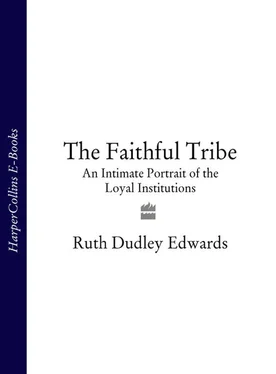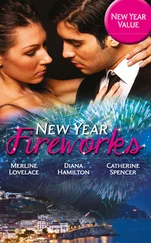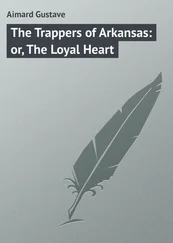* Republicans irritate unionists by comparing themselves with the ANC.
* Another insulting term for Protestants is ‘Jaffas’. Abusive terms for Catholics include ‘Fenians’ and ‘Taigs’.
* The playwright Hugh Leonard elucidated this approach in a comment on the funeral in January 1998 of Billy Wright, the notorious loyalist terrorist: ‘The town of Portadown was closed down yesterday for the obsequies of Billy Wright. Shopkeepers were “asked” to suspend business. “Your co-operation is noted (my italics) and appreciated,” is how the request was worded. Take away the olde-worlde politeness, and the translation goes: “ Shut up shop or we’ll blow your effin’ heads off.” The morality is, of course, that the more people you murder, the bigger your funeral.’
Even when operating ceasefires, loyalist and republican paramilitaries have traditionally kept control of their ghettos by kneecapping or beating half to death with iron bars or baseball bats studded with nails the disobedient or those classified as ‘anti-social’; shopkeepers are brought to heel by vandalizing or setting fire to their property.
* In 1996, after Drumcree Two, the subtle, learned and sophisticated Cardinal Daly – like most of the population of Ireland – went nakedly tribal. In an emotional and often bitter television interview he declared himself betrayed and shocked by the decision to let the Orangemen down the Garvaghy Road and thereby reinforced the prejudices of all those loyalists who doggedly believe that Catholic clergy are, at best, closet republicans and, at worst, tribal witchdoctors.
* My brother pointed out that the poem was based on Longfellow’s ‘The Jewish Cemetery at Newport’, which laments the fate of the Jews at Christian hands.
* Orangemen report frequent confusion on the titles front. My favourite example was the Australian who got so muddled about whether to call a visiting dignitary ‘Most’, ‘Right’ or ‘Very’ Worshipful, that he lost his grasp completely and addressed him as ‘Most Adorable Brother’.
* I mentioned to a Orangeman on one occasion that I had left in the middle of a set of speeches because they were awful and I couldn’t bear any more. He laughed. ‘My favourite moment at these events,’ he said, ‘is when after a particularly excruciating performance, the seconder gets up and says: “I would like to second the motion so ably proposed by Brother X.” ‘
* I once went to a Portadown Black ‘Last Saturday’ where my companion and I were taken to eat in the Orange Hall and therefore became honoured guests, even though James was from the British Foreign Office – an institution which as a consequence of the Anglo-Irish Agreement is believed by most unionists to be intent on selling them out. After the meal, we stood with some friends in the field waiting for the speakers on the platform to get going. We were spotted by an officer who felt we had to be given some mark of respect. Two chairs were brought down from the platform, placed in front of the crowd and we were summoned. ‘No, no, please, I’m fine,’ said James, who is of a retiring disposition. More experienced in the ways of Orangemen, I sat down without protest and eventually he too was persuaded to sit. Within a minute he had spotted an elderly woman and had given her his seat. Down from the platform came the officer, carrying another chair; this time James accepted his fate. For the whole of the service, except when on our feet for hymns and the national anthem, the three of us sat there, apart from those on the platform the only people among the thousands present not standing or lying on the grass.
* NORAID (the Irish Northern Aid Committee) has since 1969 raised money in the United States ostensibly for the families of republican prisoners. In effect, it has freed up IRA money which could then be used to buy weapons. Its members are happy to encourage people 3,000 miles away to kill and be killed. Its organ, The Irish People , is a hymn to hate.
2
What Members of the Irish Loyal Institutions Do
The Orangeman is a man of truth,
Who scorns all fraud and art;
And rear’d in truth, from his early youth,
He has shrin’d it in his heart;
For it proves to him a mighty shield
Against every foeman’s dart;
And his life he’d yield, on the blood-stain’d field,
Ere with that bright gem he’d part.
The Orangeman is a man of might,
But trusts not in fleshly arm;
He dares to fight for freedom and right,
And he knows no vain alarm.
But strong in truth, in virtue bold,
He fears no earthly harm;
For his heart’s stronghold, like his sires of old,
Is in virtue’s potent charm.
The Orangeman is a man of thought,
He dwells upon glories past;
Upon battles fought and great deeds wrought,
Where blew war’s deadliest blast;
And remembers mercies heaven bestowed,
When affection’s waves roll’d fast;
When man’s wrath o’erflowed, on life’s rough road
Were thorns and brambles cast.
The Orangeman is a man of faith,
He believes what is written – all,
And reveres till death what the Scripture saith,
No matter what does befall.
He hears, as it were, from heaven’s high throne,
His uprisen Master call;
And he takes his cross, and enduring loss,
Bursts through the world’s dead thrall.
The Orangeman is a man of prayer,
To heaven looks for aid;
Against want and care and every snare,
For his soul’s dread ruin laid.
And a prayerful man is never known
In perils to be afraid;
For God’s power is shown when he alone
Can save from the foeman’s blade.
The Orangeman is a man of peace,
But purity peace precedes;
And when ills increase, he cannot cease
To be warlike in his deeds.
Thus does he become a man of strife,
Of strife in a holy cause;
And when danger is rife, he would risk his life
For the King, and Church, and laws.
The Orangeman is a man of love,
He prays for his enemies,
And he’d seek to move the great King above,
On his humble bended-knees.
He loves his Bible, he loves his King,
And all good men he sees;
He loves the Orange, nor hates the Green,
And he bows to the law’s decrees.
E. Harper, ‘The Orangeman’
SAM: It’s part of us. My father and my grandfather were in the local lodge. As a little boy, the Twelfth of July was a big day. I had bands singing in my ears. It was something that was just part of your culture. It was almost like Christmas when you were a kid. You thought it would never come back again. So it was part of you. There was a band attached to my lodge so I joined the band and was a member of that band for forty-two years. There were two sets of fathers and sons in that band.
BRIAN: I resisted it for a long time after I became a Christian in 1954. I saw conflict between principle and practice. But having thought about it and realized I believed in what the institution stood for, I saw a parallel between the church and the Orange Order. The church is imperfect; the institution is imperfect. So I realized I should be inside.
Even in the days when I was critical of the Orange Order from outside it, when I saw an Orange parade, I saw a particular man I knew well, and I knew that I could not apply any of my criticism of the Order to him. I chose his lodge. So you see, the ways people live their lives speak louder than anything else. This is why I feel strongly that as an institution we don’t need a professional PR person; we simply need Orangemen on the ground, faithful people with integrity, for that speaks volumes.
Читать дальше












